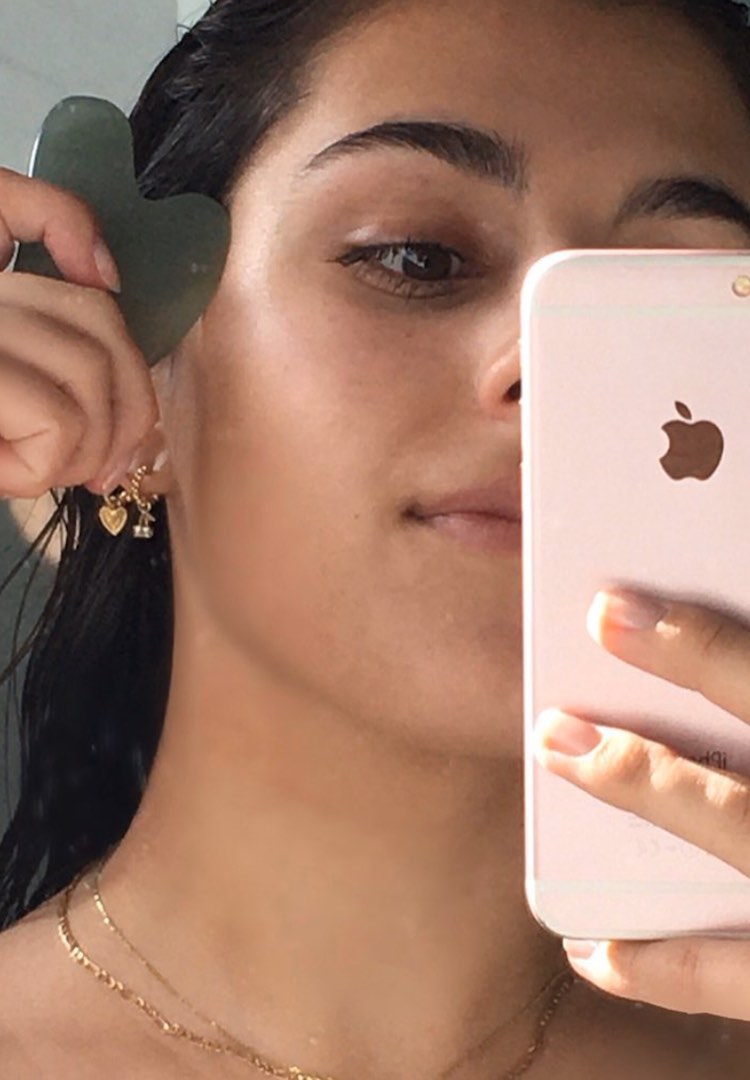
Australian beauty influencers can still promote health and skincare
“Once you dive a minimal deeper into the new code, there’s a lot of wiggle area for influencers listed here, with only a few small adjustments to their messaging.”
Final week, The Australian dropped an Instagram article that ended up developing a social media uproar. It mentioned that influencers would quickly be banned from obtaining ‘perks’ (together with payment) for posting about particular health and fitness goods, like skincare.
The put up was joined by an post about a new advertising and marketing code from the Therapeutic Goods Administration (TGA), the governing administration agency that regulates the promoting of therapeutic well being and elegance solutions in Australia. In individual, the write-up concentrated on the addition of influencers to the new principles governing paid out and gifted recommendations. It prompted a frenzy of commentary on the web, pitting concerned influencers towards critics who have long called for further regulation in just the influencer business.
Fascinated to listen to how other individuals navigate the planet? Head to our Life section.
Curiously, inspite of the news blowing up on line as if it had just been declared, the introduction of the new code was far from news – it has technically now been in outcome considering the fact that January 1 2022, with a six month ‘transitional’ grace period of time in impact right until June 2022.
In circumstance you skipped it, the improvements ended up designed after the TGA put in 18 months investigating the previous Therapeutic Items Marketing Code, intended to regulate the promotion and promoting of select therapeutic overall health and elegance items.
Why the updates?
Presently, influencers engage in a big section in marketing health and natural beauty merchandise, and are integral to the marketing and advertising strategies of many skincare, health and wellness makes, from tiny upstarts all the way to world wide behemoths like L’Oréal.
The original code, not built to regulate the modern day marketing market littered with skinfluencers supplying collagen recommendations and wellness bloggers spruiking skinny teas, obviously wanted to be up-to-date. So, the TGA resolved that the specific addition of influencers to the restrictions all-around well being merchandise was essential to guarantee promoting was “conducted in a way that promotes the high-quality use of the merchandise, is socially responsible and does not mislead or deceive the consumer”.
Especially, it states that: “The 2021 Code clarifies that paid or incentivised recommendations can’t be provided in commercials, like from any individual engaged in the production, advertising or source of the items. This contains paid or incentivised testimonies from influencers.”
The economic effects for influencers in the health and fitness, wellness and magnificence area seemed perhaps rather considerable under the broad definition of ‘therapeutic goods’, common influencer-marketed items like natural vitamins, protein powders, nutritional supplements and even sunscreens will tumble below the ban.
However, in spite of the initial social media storm, it would seem the code has remaining a number of openings for the influencer market to carry on very substantially unrestricted – free recommendations will nevertheless be authorized, as will compensated and gifted promotions of these goods without the need of a testimonial hooked up. Effectively, it appears to be like like an influencer will still be able to be paid out to market a complement or vitamin, they just won’t be able to explicitly say that it presented them with a certain result.
So what do these changes really signify?
To locate out much more about these variations, I spoke to senior attorney and founder of social media regulation business Social Legislation Co, Tegan Boorman. “Whilst the new Therapeutic Merchandise Promotion Code clarifies that testimonies are unable to be furnished by influencers in ads about therapeutic items, it does not prohibit some influencers from giving an endorsement (without any testimonial) about some therapeutic products, irrespective of whether expressly or by implication,” claims Boorman.
“Certain influencers, together with, but not minimal to, those people who are existing or previous well being practitioners, health and fitness professionals, clinical scientists or people today who symbolize them selves as becoming capable or skilled to diagnose, address or stop condition, ailment, defect or injuries in men and women are unable to supply testimonials or endorsements about therapeutic goods.”
So, in the end, not a big total has improved, seriously. In reality, the moment you dive a small deeper into the new code, there’s a ton of wiggle room for influencers here, with only a couple of compact changes to their messaging.
“We do need to have to discover more close to the distinction amongst the banned testimonial and allowed endorsement, as this will determine the result [on influencers],” claimed Genevieve Working day, founder and director of influencer talent agency Working day Administration, when I spoke to her earlier this week about the new code.
“I understand that the room required to be far more intensely regulated, as sad to say there have been individuals out there spreading misinformation. However, these new guidelines are also punishing influencers who perform honestly and authentically with brands they align with, even these trying to advertise constructive messaging like sunlight basic safety. I hope we can uncover a middle floor, defending customers while also letting room for authentic brand collaborations.”
What do influencers have to say?
Influencers by themselves have typically jumped to staunch criticism of the new code, with several proclaiming the laws unfair, detrimental to their small business, and potentially devastating to fledgeling enterprises reliant on influencer promoting to publicize their merchandise.
On the Instagram article pushing The Australian’s report about the new laws alone, there are around 1,700 comments, many from influencers themselves.
“This is preposterous and is heading to be a massive blow to tiny firms and creators. You are fundamentally saying that individuals are much too dumb to make an knowledgeable choice right before generating a commitment to purchase,” commented ‘Influencer coach’ @itsashleighjade.
“This is insulting to the community additional than any individual. You are declaring that they’re that uneducated they just cannot make up their own minds and they’re conveniently manipulated into acquiring issues?” commented Zoe George, @thesubtlemummy.
Melissa Rawson, a Married at Initial Sight contestant with 145k followers, also pointed out what she – and quite a few other commenters – perceived as a double regular, writing: “Then ALL marketing in journals, newspapers, Television set, electronic publications that promotes health and wellness merchandise need to be banned also. When an influencer does a article it claims ‘paid post’ or #ad. I’m not positive why this has been singled out when other ‘advertising’ mediums have not. Can any person reveal this to me?”
A regularly relocating beast
Quite a few of the influencers sounding off on social media seem to be to have skipped the delicate caveat to the code permitting them to nonetheless be ready to endorse the goods – similar to traditional media – as prolonged as it’s not shipped in the type of a private ‘testimonial’. But as Boorman tells me, this could only be the beginning of the at any time-tightening limits all-around influencer marketing and advertising and compensated promotions on social media.
“I expect to see more regulatory interest all over influencers selling economical products and solutions,” she states. “I also anticipate to see more difficulties all around promoting disclosure, and some influencer advertising strategies failing to comply with the Australian Customer Law.”
In phrases of long term opportunity constraints, Day also anticipates the rules to be a continuously moving beast as advertising and marketing bodies continue on to evolve their comprehending of the affect of influencer promotions on several industries. She does, on the other hand, have some criticism for the specific onus of duty on influencers, relatively than the enterprises them selves.
“We’ve by now found modifications in ad disclosure, and now around overall health promises,” she states. “The rules do involve some finessing, and I expect they’ll continue to improve each couple of decades. Even so, I do wish that the similar policies and scrutiny also utilized to the merchandise and brands currently being promoted, as it does for influencers.”
For much more on the new TGA laws, head below.




